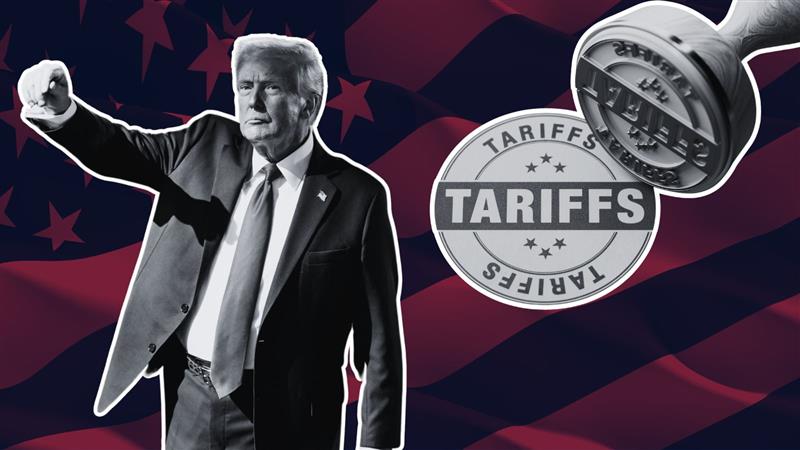
Back to performance: SEA marketers on seismic changes amidst tariff shockwaves
share on
News around the United States imposing sweeping tariffs on numerous countries, including several in Asia, aiming to address trade imbalances and bolster domestic industries, have dominated headlines globally.
These tariffs have led to significant economic worries and ripples across the region. For instance, Malaysia is spearheading a unified ASEAN response to these US tariffs, emphasising the importance of regional cohesion in mitigating economic fallout.
Malaysia's Prime Minister Anwar Ibrahim said according to The Star, that Asean countries need to "stand firm" together to form an agreement on the tariffs, to demonstrate a unified stance and build a stronger foundation for upcoming negotiations. He added that the tariffs go against the fundamental principle of non-discrimination which underpins global trade rules.
In Singapore, Prime Minister Lawrence Wong has put out a rather rare, chilling video bracing Singaporeans for the “seismic change” and impact of the escalating trade wars. These pressures threaten to leave small countries such as Singapore “squeezed out, marginalised and left behind”.
Following Wong’s statement, netizens expressed anxiety and frustration on the impact on consumers, sparking conversations around boycott of US products, according to data from Truescope. Others called for partnerships with other countries and asked the government for concrete countermeasures.
Meanwhile, in Indonesia, President Prabowo Subianto has taken a diplomatic stance in response to the 32% tariffs on Indonesian goods, sending a delegation to negotiate fairer trade terms with the US.
Don't miss: Could Trump's comeback see more Chinese HQs setting up in SEA?
Many marketers and CMOs MARKETING-INTERACTIVE spoke to shared that they were waiting and assessing the situation, but were hesitant to go on the record for a comment.
Nonetheless, what was clear was that for marketers in Asia, these developments necessitate a strategic reassessment of market positioning.
Speaking to MARKETING-INTERACTIVE, former international CMO of McDonald’s Eugene Lee said in such a situation, his worry goes to the backdoor cost impact on the supply chain, which will then directly impact the price of products going to market.
He added that in the F&B industry, players generally aim to keep prices in line with the national food inflation rate — for example if inflation externally is 5%, an F&B outlet will try to keep their price adjustments for the year between 3-4% as a best practice.
“However, with tariffs, the inflation shoots up multi-fold, which puts pressure on the P&L, resulting in much higher price adjustments which could be upwards of 15%,” he shared.
Expectedly, this means the P&L’s of businesses will be under pressure, and that means marketers will once again feel the pinch to do more with less.
“My biggest worry is that the tariff war will cause a drop in consumer sentiment, leading to a drop in consumer spending. This will hit marketers hard and in response to soft sales, might even lead to price wars and a race to the bottom that no one wants,” he added.
Once again, a focus on performance
With marketers still feeling the squeeze from the pandemic just several years ago, and the added complexity of tariff measures, the industry can expect a decisive shift from brand-building efforts to performance marketing, added Gracia Yap, former regional marketing head of Tag Heuer.
To ride out the storm, marketers must collaborate closely with leadership to establish clear ROI metrics that justify every dollar spent, she advised. This means, learning to speak the language of senior leaders as well.
"We’re entering an era where performance-based campaigns will dominate marketing strategies. The ability to track results quickly and refine tactics will separate successful brands from those struggling to adapt. Besides being practical, it’s essential in navigating today’s turbulent economic environment."
Messaging to consumers
Yap added that if marketers haven’t yet invested, they need to now bank big on loyalty.
"Customer loyalty has never been more critical. Transparent communication about price increases tied to tariffs will help maintain trust, especially as disruptions ripple through industries such as retail,” she said.
“I do foresee that there will be a stronger emphasis on localization across the world, and a bigger focus on local communities to de-risk brands,” said Lee. He added that this switch will definitely impact the broader media strategy so that brands reach local customers where they are.
Like Yap, he added that subsequently, with pressures on the P&L and marketing budgets being cut, a shift towards performance marketing and ensuring every dollar works harder to drive sales is undeniable.
Join us this coming 23 - 24 April for #Content360, a two-day extravaganza centered around three core thematic pillars: Challenging The Norm; Technology For Transformation; and Unlocking Imagination. Immerse yourself in learning to curate content with creativity, critical thinking, and confidence with us at Content360!
Related articles:
TikTok granted second extension amid US tariffs wars
Interview: Eugene Lee exits McDonald's, reflects on his career and the industry
Better than revenge: Why Taylor Swift's statement on Trump AI-generated photos hits the PR mark
share on
Free newsletter
Get the daily lowdown on Asia's top marketing stories.
We break down the big and messy topics of the day so you're updated on the most important developments in Asia's marketing development – for free.
subscribe now open in new window
